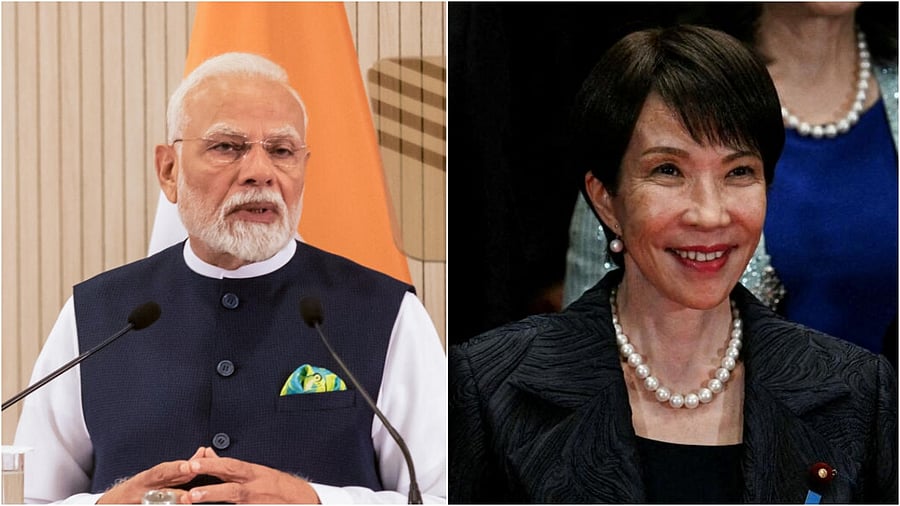
PM Narendra Modi(L), Japan's Sanae Takaichi
Credit: Reuters Photo
New Delhi: As Sanae Takaichi, known for her hawkish stand on China and the security threat it poses to Japan, took over as the top office in Tokyo, Prime Minister Narendra Modi congratulated her and stressed that India’s relations with the Land of the Rising Sun were vital for peace and stability in the Indo-Pacific region.
Modi is likely to have his first meeting with Takaichi, who took over as the new prime minister of Japan on Tuesday, on the sidelines of the ASEAN conclaves and the East Asian Summit in Kuala Lumpur next week.
“Heartiest congratulations, Sanae Takaichi, on your election as the Prime Minister of Japan. I look forward to working closely with you to further strengthen the India–Japan Special Strategic and Global Partnership,” Modi posted on X. “Our deepening ties are vital for peace, stability, and prosperity across the Indo-Pacific and beyond.”
India and Japan, along with Australia and the United States, are members of Quad, a coalition forged by the four nations to counter China’s expansionist aspirations in the Indo-Pacific region.
Modi had met Takaichi’s predecessor, Shigeru Ishiba, during the last visit to Tokyo in August. They had reaffirmed the commitment of India and Japan “towards a free, open, peaceful, prosperous, and rules-based Indo-Pacific”.
The comments made by the two prime ministers had apparently been intended to send a message to China, which had been accused by its neighbours of territorial aggression, not only along its disputed boundary with India, but also in the East China Sea, South China Sea and the Taiwan Strait.
India and Japan had expressed serious concern over the situation in the East China Sea and the South China Sea, and strongly opposed any unilateral actions that endanger the safety as well as freedom of navigation and overflight, and attempt to change the status quo by force or coercion.
